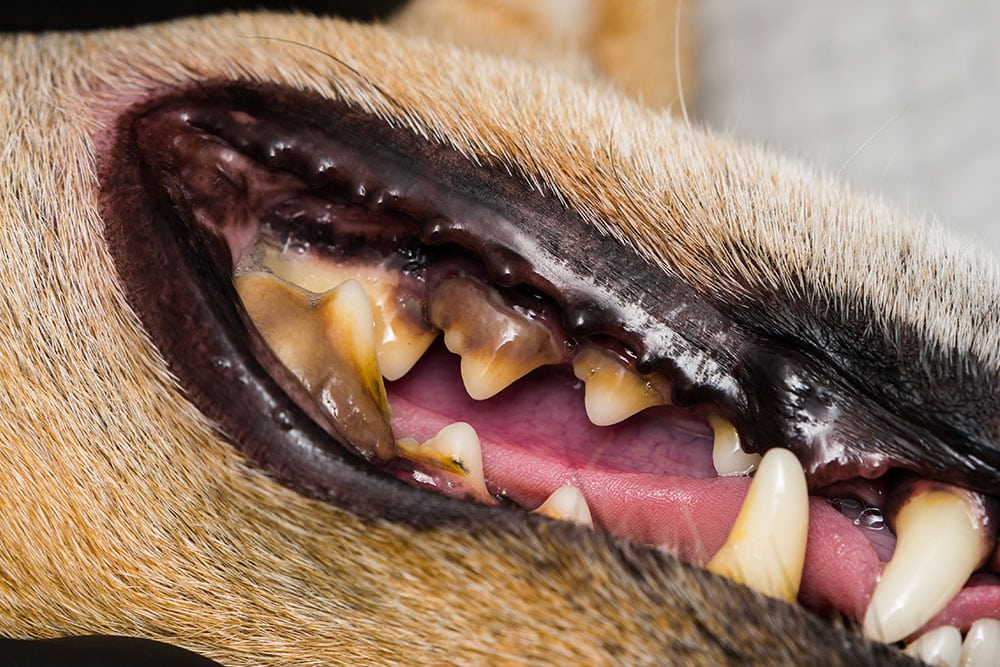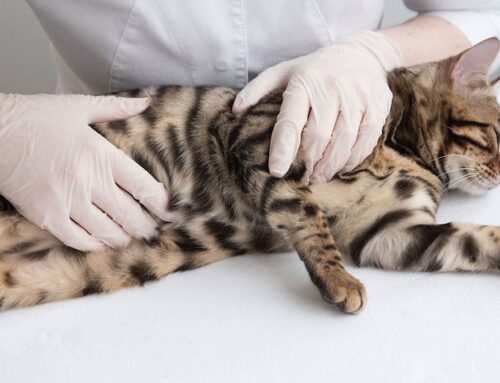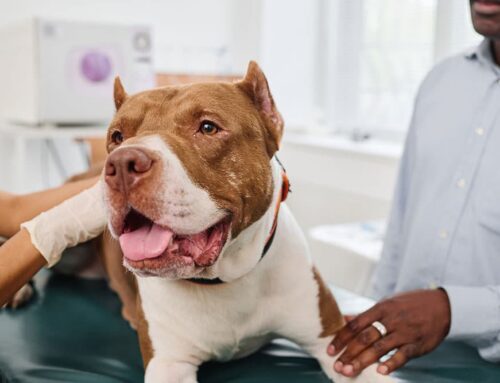When Bad Teeth Turn Deadly: The Systemic Impact of Dental Disease in Pets
Many pet owners assume dental problems are limited to bad breath or tartar buildup. In reality, untreated dental disease can harm the heart, kidneys, and liver- and can even contribute to dangerous infections throughout the body. Signs like pawing at the mouth, refusing food, or drooling often indicate advanced issues.
At St. Petersburg Animal Hospital and Urgent Care, we make dentistry accessible with same-day availability, competitive pricing, and full-service urgent care support for pets needing immediate relief.
Understanding Dental Disease in Pets
The Crucial Role of Dental Health in Your Pet’s Overall Well-being
When most pet owners think about dental health, they picture yellow teeth or morning breath. However, your pet’s mouth is the gateway to their entire body, affecting far more than their ability to chew.
Dental disease isn’t just a local problem- it’s a chronic infection that can send bacteria and inflammatory compounds through the bloodstream. These organisms and toxins settle in vital organs, damaging tissues over time. The inflammation also taxes the immune system, leaving pets more vulnerable to other illnesses.
That’s why our expert team emphasizes oral care as a foundation for whole-body wellness rather than a cosmetic procedure.
The Connection Between Dental Health and Major Organs
How Dental Disease Affects Heart Health
The link between periodontal disease and heart problems in pets mirrors what we see in human medicine. When gums are inflamed and infected, bacteria can enter the bloodstream and attach to the heart valves, leading to bacterial endocarditis. This infection can cause thickening or scarring of the valves, which strains the heart and interferes with normal blood flow.
Dogs and cats with advanced dental disease are more likely to develop murmurs or irregular rhythms, and chronic inflammation can damage blood vessel linings, increasing the risk of clots. Over time, the heart must work harder to circulate blood, compounding other age-related cardiac concerns.
The Impact of Oral Health on Kidney Function
The kidneys constantly filter blood, but when bacteria and toxins from dental disease circulate, the filtration system works overtime. Chronic exposure to these substances leads to inflammation and scarring within the kidney tissue, impairing its ability to remove waste.
Because kidney damage often progresses silently, pets may show no outward signs until significant loss of function occurs. Poor oral health accelerates that decline, creating a cycle where toxins build faster than the kidneys can remove them. Early dental intervention protects these delicate organs and helps slow the onset of kidney disease.
Liver Damage from Dental Disease
The liver acts as a detoxification hub, filtering bacteria and byproducts that enter the bloodstream. Chronic oral infection forces it to process constant inflammatory material, leading to cellular stress and reduced efficiency.
Over time, this strain can cause inflammation, scarring, or elevated liver enzymes that indicate dysfunction. Because liver disease develops gradually, subtle warning signs- like appetite loss, decreased energy, or mild jaundice- can be mistaken for aging. Maintaining a clean, healthy mouth helps reduce this metabolic burden.
Both liver disease in dogs and liver disease in cats often start with bacterial migration from oral infections that go unchecked for months or years.
When Oral Infections Spread: Sepsis and Abscesses
In advanced cases, bacteria from dental infections can escape into deeper tissues. An untreated tooth root infection can form a retrobulbar abscess– a painful condition behind the eye that causes swelling, eye bulging, and facial pain. Pets may refuse to eat, paw at their face, or cry when opening their mouth. These cases require immediate medical attention and often surgical drainage or extraction.
If bacteria continue to spread unchecked, they can enter the bloodstream, leading to sepsis. Sepsis is a life-threatening emergency where infection overwhelms the immune system and damages tissues throughout the body. It can cause rapid heartbeat, low blood pressure, fever, and collapse. Pets with untreated dental infections, especially those who are older or immunocompromised, are particularly at risk.
The Link Between Dental Disease and Diabetes
Chronic inflammation from oral infections has also been shown to interfere with insulin regulation, worsening diabetes in pets. The persistent presence of oral bacteria triggers an immune response that elevates blood sugar levels and increases insulin resistance.
For diabetic pets, this creates a vicious cycle: poor dental health makes glucose harder to control, while uncontrolled diabetes weakens the immune system and allows oral infections to worsen. Addressing dental disease early is one of the most effective ways to help stabilize blood sugar and improve overall metabolic health.
Pain, Behavior, and Weight Changes
Dental disease doesn’t just affect organs- it also changes how pets act and feel day to day. Chronic mouth pain influences mood, eating habits, and body condition. Pets may chew on one side, drop food, or walk away from the bowl entirely.
Because animals instinctively hide pain, owners often notice subtle behavioral shifts before obvious symptoms appear. Common pain signs in pets include decreased playfulness, irritability, licking at the lips, or avoidance of touch near the mouth. Some pets stop grooming or show sudden changes in sleep patterns.
Pain also impacts body weight. Cats and dogs who struggle to eat may lose weight and muscle mass. Managing oral discomfort restores normal eating behavior and helps maintain a healthy weight.
Veterinary Visits
Dental checks should be part of every routine exam. Your veterinarian can spot gum changes, damaged teeth, or discomfort before they worsen. If kidney or liver problems, heart disease, or diabetes come into play, our internal medicine services can help get your pet back on track.
Comprehensive wellness care includes dental evaluation along with vaccines, parasite prevention, and screening tests, ensuring your pet’s whole-body health.

Advanced Procedures
When disease has progressed beyond cleaning, advanced procedures may be needed, including extractions, root abscess treatment, or oral surgery for severe gum disease or oral masses.
At St. Petersburg Animal Hospital’s dentistry services, we provide comprehensive care tailored to each pet- using digital X-rays, pain management, and recovery support to restore comfort and prevent recurrence. Every procedure is performed with your pet’s safety and long-term wellbeing as our top priority.
Busting Persistent Pet Dental Myths
- “Bad breath is normal.” Persistent odor usually signals gum disease or infection.
- “Wild animals don’t brush, so pets don’t need it.” Wild animals don’t live as long, and their diets and lifestyles don’t reflect domestic pets’ needs. Regular dental care supports the longer lives our pets now enjoy.
- “If they’re eating, they must be fine.” Many pets eat through significant pain- often using one side of the mouth or swallowing food whole to avoid chewing.
Taking Action for Your Pet’s Health Today
Dental disease progresses quietly but can damage vital organs and cause chronic pain long before visible signs appear. If your pet has bad breath, difficulty eating, or changes in behavior, seek evaluation promptly.
At St. Petersburg Animal Hospital and Urgent Care, we provide same-day dental evaluations, full-mouth X-rays, and urgent care support for pets in pain. We’re also passionate about transparency- you can check out our pricing and financing options to get an idea of what services are available, and what they cost. We want you to feel comfortable coming to us, before you even walk in our door.
Call us at (727) 323-1311 or contact us for immediate scheduling. Protecting your pet’s teeth protects far more than their smile- it safeguards their heart, kidneys, liver, and overall wellbeing.







Leave A Comment